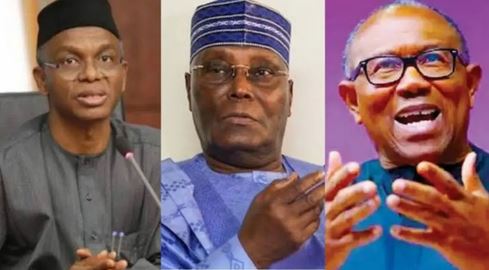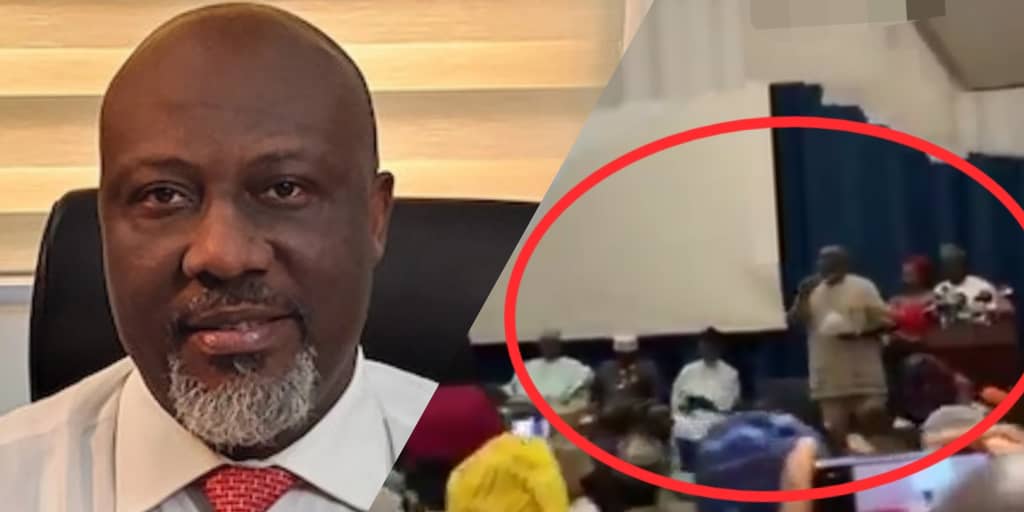JUSTIN: Coalition Adopts ADC As Mark, Aregbesola Emerge Party's Chairman, Secretary
As part of the sweeping changes in the party, David Mark emerged as the National Chairman, while former Minister of Interior and two-term Osun State Governor, Ogbeni Rauf Aregbesola, has been appointed the National Secretary of the ADC.
The announcement was made during a high-level meeting of coalition leaders and party stakeholders in Abuja on Tuesday.
In his acceptance speech, Aregbesola expressed a sense of urgency and the need for reform, calling for a return to value-driven politics grounded in ideology and public service.
“It is with deep humility, a profound sense of duty, and unwavering hope for our people, nation, race and party that I accept the appointment as the National Secretary of our great party,” Aregbesola declared.
He expressed gratitude to the party leadership and coalition members for their confidence in him, stressing that his commitment would be to the people and the principles of accountable governance.
“A political party is not a platform for opportunism. It is not a mere vehicle to power for the few, nor a tool for personal ambition,” he said. “A political party, in its truest form, is a living institution—built on values, guided by ideals, and accountable to the people it seeks to serve.”
Aregbesola was critical of Nigeria’s prevailing political party culture, lamenting the widespread lack of ideological direction among dominant parties.
“Our political landscape is plagued by parties that lack ideological depth. They are empty shells—merging and splitting, not over policy or principle, but over power and personality. There is little regard for the people, and even less for the country,” he said.
Citing historical liberation movements for inspiration, Aregbesola referenced the African National Congress (ANC) of South Africa as an example of how an ideology-based, people-centered party can make lasting impact.
“The ANC is not perfect, but it stands for something. It was forged in resistance, sharpened by vision, and led by men and women who believe in justice, dignity, equality, and true freedom. It has character. It has soul,” he stated.
Laying out his agenda, Aregbesola pledged to transform the ADC into a modern political institution anchored on internal democracy, transparency, and service that extends beyond election cycles.
“We must become an institution where internal democracy is not just preached but practiced… where young people, women, and the marginalized have a real voice, not symbolic inclusion,” he said.
He further stated that under his leadership, the ADC would promote fair and transparent internal competition, empower party structures from the ward to the national level, and establish autonomous wings for key interest groups including educators, workers, farmers, professionals, and persons with disabilities.
Aregbesola also emphasized that the party would adopt international best practices, learning from successful political models in countries like South Africa, Sweden, Chile, and Kenya.
“We will study what works and adapt what fits our local reality. Discipline, order, clarity of purpose, and service to the people must define us,” he pledged.
However, Aregbesola cautioned, “This is not an easy task. It will take time. It will demand sacrifice. But it can be done.
“Hold me accountable. Challenge me when I stray. And stand with me as we begin this journey to rebuild our party, restore its soul, and return politics to its rightful place—as a service to the people.”
The coalition’s adoption of the ADC—uniting key figures from the Peoples Democratic Party (PDP), Labour Party (LP), and All Progressives Congress (APC)—is being seen as a ‘third-force’ movement that could disrupt Nigeria’s current two-party dominance.
Notably, Aregbesola remains a member of the ruling APC, Atiku is still with the PDP, and Peter Obi continues to be a member of the Labour Party.












